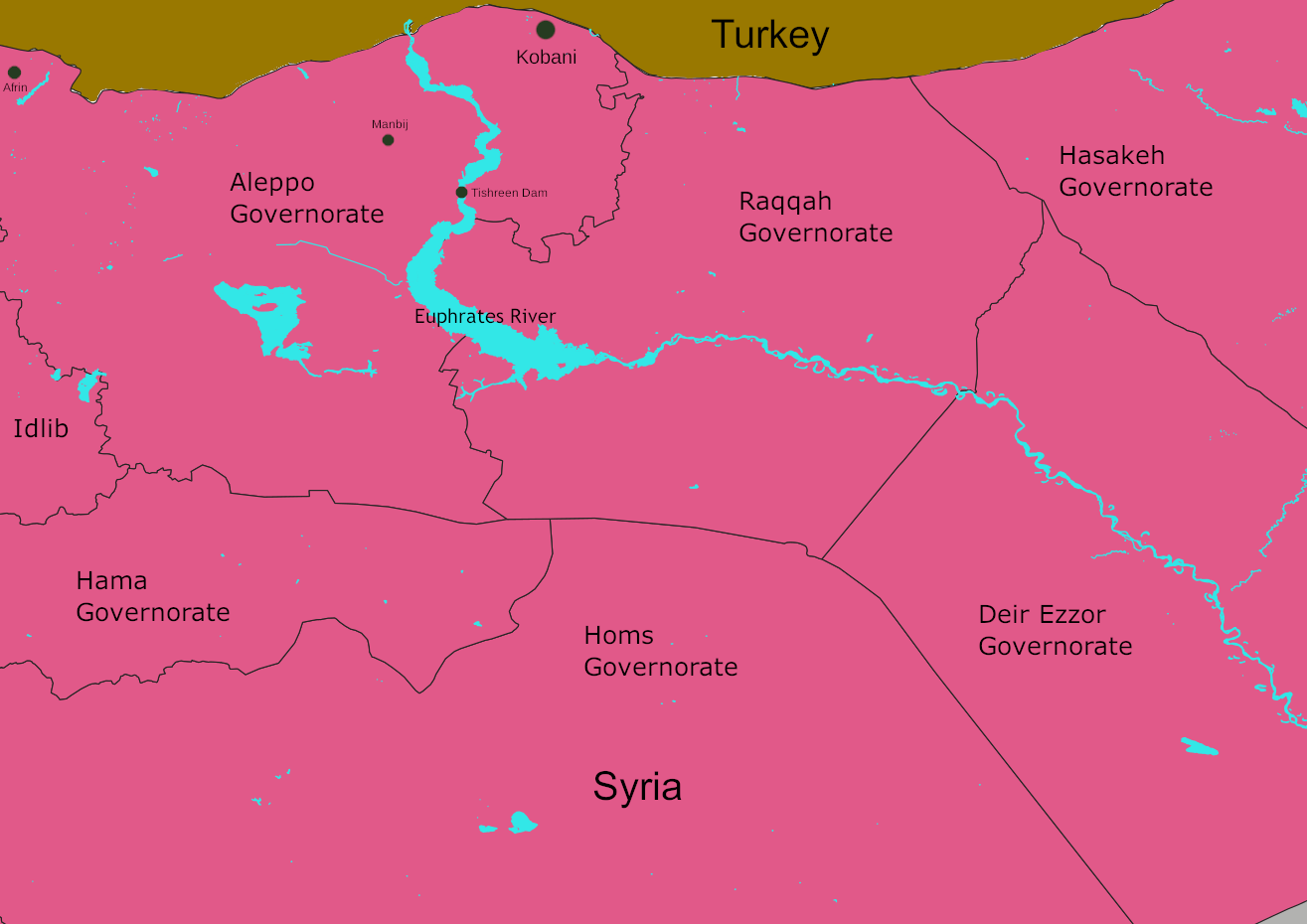Months of fighting over control of the Tishreen Dam in Syria’s Aleppo Governorate seems to be on hold now, according to reports from Kurdish officials, after Turkey agreed to mediated talks and a “provisional” halt to shelling the dam.
Turkey and their allies in the SNA faction had been attacking the Kurdish SDF in growing amounts in recent months, expelling them from the area around Manbij and pushing toward Tishreen Dam and striking the area around the city of Kobani.
The US is mediating the talks, and one of the new bases the US plans to position troops at is near to the dam, so clearly they would prefer the area to not be an active battlefield between US-allied Kurds and US-allied Turkey.

The Kurdish civilian authority, the AANES says that talks are ongoing and Damascus is aware of them, though Turkey has so far not agreed to a broader ceasefire expanding into the whole Kurdish northeast of Syria.
The SDF has met with protesters recently at the Tishreen Dam to reassure them. The hydroelectric dam is a major source of electricity and fresh water from the Euphrates River, and there was fear that the loss of the dam would cripple Kurdish Syria economically. This has led to civilians rallying there to “protect” the dam, though they too have often come under attack.
The situation seems to be changing with the Syrian government getting involved too, as recently the SDF agreed to hand over security control of the dam to a joint patrol of SDF and Syrian military forces, though the dam remains under civil control of the AANES.
The SDF has also made deals with the Syrian government regarding areas like Afrin, a historically major Kurdish city which Turkey’s SNA has seized and displaced a lot of people. Syrian state forces are beginning to supplant the SNA in the area, raising hopes that displaced civilians might eventually safely return to Afrin.
Turkey is aligned with the Syrian government, and at Turkish behest they’ve pushed the idea of centralized control and no autonomy for regions, especially the Kurds. Given the central government seems to be tolerating the Turkey-AANES talks, however, that may be changing.


